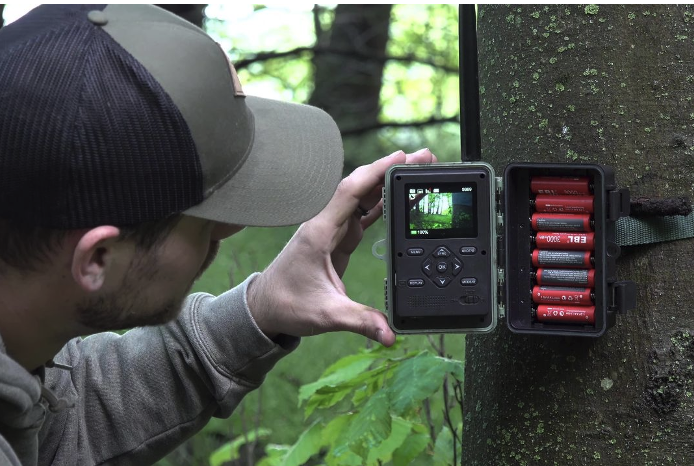
Trail cameras have revolutionized the way outdoor enthusiasts capture moments in nature. Whether you're an avid hunter, a wildlife observer, or just someone who loves exploring the great outdoors, these devices offer a unique window into wildlife behavior. But to get the most out of your trail camera experience, you need to ensure it's powered by reliable batteries.
Imagine setting up your camera and eagerly anticipating those breathtaking shots of elusive deer or playful raccoons, only to find that the dead battery has left you empty-handed. That’s where choosing the best batteries for trail cameras becomes crucial. With so many options available on the market today, it can be overwhelming to figure out which ones will keep your gear running smoothly during all your adventures.
Let’s dive deeper into why reliable batteries are essential for trail cameras and explore some top choices that will power up your adventure!
When it comes to trail cameras, reliable batteries are essential. You can have the best camera on the market, but without dependable power, you might miss crucial moments in nature.
A high-quality battery ensures your camera remains operational during critical times. Wildlife is unpredictable; having a dead battery is not an option when that rare sighting occurs.
Moreover, temperature fluctuations can affect battery performance. Different types of batteries react differently under extreme conditions. Using reliable options means fewer worries about sudden failures when temperatures drop or rise unexpectedly.
Frequent battery changes can disrupt your experience and lead to missed opportunities. Investing in top-tier batteries allows for longer intervals between replacements while still capturing stunning images and videos of wildlife adventures.
When it comes to powering trail cameras, several battery types come into play. Each has its strengths and weaknesses.
Alkaline batteries are the most common choice. They’re widely available and affordable, making them a popular option for casual users. However, they can drain quickly in cold weather.
Lithium batteries are another great alternative. They offer a longer lifespan than alkaline options and perform better in extreme temperatures. This makes them ideal for those long-term monitoring trips.
Rechargeable NiMH batteries also deserve mention. While they may have a lower voltage output, their ability to be recharged saves money over time. Plus, they're more environmentally friendly.
Some advanced models accept external power sources like solar panels or 12V adapters. These solutions provide extended use without frequent battery changes—perfect for serious wildlife enthusiasts seeking uninterrupted surveillance.
When it comes to the best batteries for trail cameras, several brands stand out. Energizer is a favorite among outdoor enthusiasts due to its long-lasting performance and reliability. Their lithium batteries work exceptionally well in extreme temperatures.
Duracell also makes a strong contender with their CopperTop series. Known for consistent energy output, these alkaline batteries are widely used by hunters and wildlife watchers alike.
For those looking for rechargeable options, Ansmann delivers great results. Their NiMH batteries offer eco-friendly alternatives without sacrificing power or longevity.
Rayovac provides budget-friendly choices that don’t compromise on quality. Many users appreciate the balance of cost-effectiveness and dependable performance from this brand.
Each brand brings something unique to the table, catering to varied needs and preferences in different environments.
Choosing the right battery for your trail camera can greatly impact its performance. Start by considering the type of camera you have. Some models require specific battery sizes, while others offer flexibility.
Next, think about how long you'll be using it outdoors. For extended trips, high-capacity batteries are essential. They provide longer life and reduce the hassle of frequent replacements.
Temperature sensitivity is another factor to weigh in. Certain batteries perform better in extreme cold or heat, which affects their lifespan.
Don’t overlook brand reputation either. Well-known brands often produce more reliable products that withstand harsh conditions.
Consider your budget. Sometimes spending a little extra on premium batteries pays off in performance and longevity throughout your adventures.
To maximize the lifespan of your trail camera batteries, consider using high-quality lithium batteries. They perform better in extreme temperatures and have a longer shelf life than alkaline options.
Adjusting your camera settings can also make a big difference. Reducing the trigger speed and resolution will help conserve energy while still capturing great images.
Positioning is equally important. If possible, place your trail camera in shaded areas to prevent overheating during hot days. Excess heat can drain battery life faster than you might expect.
Regular maintenance matters too. Clean any dirt or debris from the battery compartment to ensure solid connections and optimal performance.
Check for firmware updates on your cameras; manufacturers often release improvements that enhance efficiency and save precious battery power over time.
When it comes to choosing the best batteries for trail cameras, it's essential to consider reliability and performance. The right battery can dramatically enhance your outdoor adventures by ensuring that your camera is always ready when you are. Evaluate your specific needs—whether you're capturing wildlife images or monitoring property—and pick a battery type that meets those demands.
For maximum efficiency, lithium batteries often come out on top due to their long shelf life and superior performance in extreme temperatures. However, alkaline batteries may be more readily available and suitable for less demanding situations.
Don’t forget about maintenance tips like keeping contacts clean and testing battery life before heading out into the field. A little preparation goes a long way in avoiding frustrating moments where you miss capturing precious memories or crucial events.
Investing time in selecting quality batteries will ultimately empower your trail camera experience. Make informed choices based on reliable brands and features tailored to your adventure needs, ensuring every moment is recorded with precision.